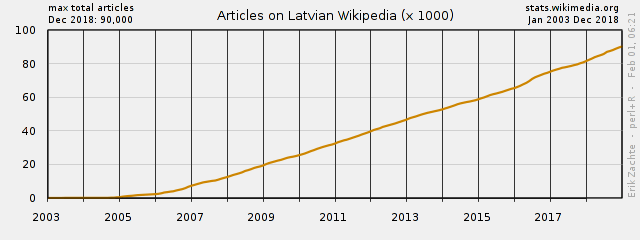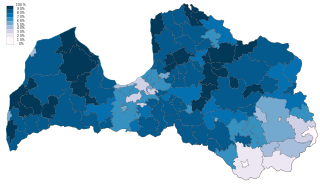
Latvian, also known as Lettish, is an East Baltic language belonging to the Indo-European language family and it is spoken in the Baltic region. It is the language of Latvians and the official language of Latvia as well as one of the official languages of the European Union. There are about 1.5 million native Latvian speakers in Latvia and 100,000 abroad. Altogether, 2 million, or 80% of the population of Latvia, spoke Latvian in the 2000s, before the total number of inhabitants of Latvia slipped to 1.8 million in 2022. Of those, around 1.16 million or 62% of Latvia's population used it as their primary language at home, though excluding the Latgale and Riga regions it is spoken as a native language in villages and towns by over 90% of the population.

The English Wikipedia is the primary English-language edition of Wikipedia, an online encyclopedia. It was created by Jimmy Wales and Larry Sanger on 15 January 2001, as Wikipedia's first edition.
Wikisource is an online wiki-based digital library of free-content textual sources operated by the Wikimedia Foundation. Wikisource is the name of the project as a whole; it is also the name for each instance of that project, one for each language. The project's aim is to host all forms of free text, in many languages, and translations. Originally conceived as an archive to store useful or important historical texts, it has expanded to become a general-content library. The project officially began on November 24, 2003, under the name Project Sourceberg, a play on Project Gutenberg. The name Wikisource was adopted later that year and it received its own domain name.

The Portuguese Wikipedia is the Portuguese-language edition of Wikipedia, the free encyclopedia. It was started on 11 May 2001.

The Romanian Wikipedia is the Romanian language edition of Wikipedia, the free encyclopedia. Started on 12 July 2003, as of 16 January 2025 this edition has 502,643 articles and is the 30th largest Wikipedia edition. In December 2004, users on the Romanian Wikipedia started to talk about founding a local chapter of Wikimedia, Asociația Wikimedia România.

The Esperanto Wikipedia is the Esperanto version of Wikipedia, which was started on 11 May 2001, alongside the Basque Wikipedia. With over 365,000 articles as of January 2025, it is the 37th-largest Wikipedia as measured by the number of articles, and the largest Wikipedia in a constructed language.

Latgalian is an East Baltic language. The language law of Latvia classifies it as a "historical language of Latvia". It is mostly spoken in Latgale, the eastern part of Latvia. The 2011 Latvian census established that 164,500 of Latvia's inhabitants, or 8.8% of the population, speak Latgalian daily. 97,600 of them lived in Latgale, 29,400 in Riga and 14,400 in the Riga Planning Region.
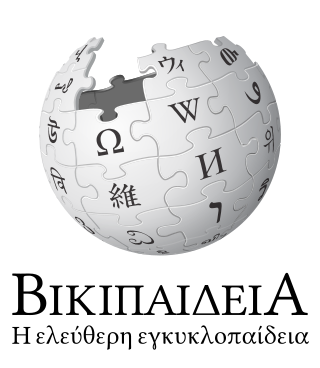
The Greek Wikipedia is the Greek-language edition of Wikipedia, the free online encyclopedia. It was started on 1 December 2002. It surpassed the 10,000 article mark on 16 May 2006, the 100,000 article mark on 9 April 2014, and the 200,000 article mark on 27 November 2021. As of January 16, 2025, it is the 47th largest Wikipedia, behind Belarusian Wikipedia and ahead of South Azerbaijani Wikipedia.

The Wikimedia movement is the global community of contributors to the Wikimedia projects, including Wikipedia. This community directly builds and administers these projects with the commitment of achieving this using open standards and software.

The Serbian Wikipedia is the Serbian-language version of the free online encyclopedia Wikipedia. Created on 16 February 2003, it reached its 100,000th article on 20 November 2009 before getting to another milestone with the 200,000th article on 6 July 2013, and then another milestone with the 500,000th article on 13 January 2018.
The Latvian language is an extensively inflected language, with complex nominal and verbal morphology. Word order is relatively free, but the unmarked order is subject–verb–object. Latvian has pre-nominal adjectives and both prepositions and postpositions. There are no articles in Latvian, but definiteness can be indicated by the endings of adjectives.
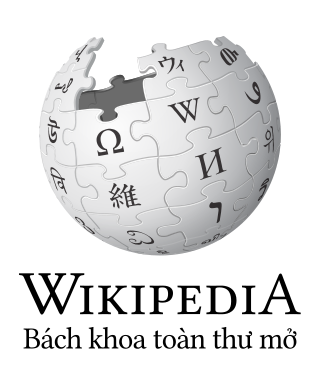
The Vietnamese Wikipedia is the Vietnamese-language edition of Wikipedia, a free, publicly editable, online encyclopedia supported by the Wikimedia Foundation. Like the rest of Wikipedia, its content is created and accessed using the MediaWiki wiki software.

The Basque Wikipedia is the Basque language edition of Wikipedia. Founded on 6 December 2001, although its main page was created in November 2003, it reached 58,124 articles by 19 August 2010, making it the 45th-largest Wikipedia. As of January 2025, it has 497 active contributors, of which 12 are administrators, and has about 451,000 articles.

The Tamil Wikipedia is the Tamil language edition of Wikipedia established in September 2003, run by the Wikimedia Foundation. The Tamil Wikipedia is the largest Wikipedia among Indian languages and the 60th largest Wikipedia by article count. It is also the first and only Wikipedia of Dravidian origin to possess more than 150,000+ articles. The project is one of the leading Wikipedia among other South Asian language Wikipedia's in various quality matrices. It has 170,910 articles and 239,933 registered users as of January 2025. It crossed 100,000 articles in May 2017.

Latvian State Language Centre is a direct administration institution subordinated to the Minister of Justice of the Republic of Latvia. The purpose of the State Language Centre is to implement the national policy on the use of the official language - Latvian.

The Swedish Wikipedia is the Swedish-language edition of Wikipedia, started in 2001. A free content online encyclopedia, it is the largest reference work in Swedish history, while consistently ranked as the most visited, or one of the most visited Swedish language websites.
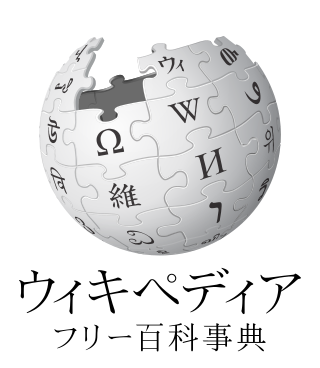
The Japanese Wikipedia is the Japanese edition of Wikipedia, a free, open-source online encyclopedia. Started on 11 May 2001, the edition attained the 200,000 article mark in April 2006 and the 500,000 article mark in June 2008. As of January 2025, it has almost 1,445,000 articles with 12,869 active contributors, ranking fourth in the latter metric behind the English, French and German editions.

The Volapük Wikipedia is the Volapük-language edition of the free online encyclopedia Wikipedia. It was created in February 2003, but launched in January 2004. As of 17 January 2025, it is the 110th-largest Wikipedia as measured by the number of articles, with about 40,000 articles, and the third-largest Wikipedia in a constructed language after the Esperanto Wikipedia and the Ido Wikipedia.

The Ossetian Wikipedia is the Ossetian-language edition of the free online encyclopedia Wikipedia. It was created on 28 February 2005. With approximately 20,000 articles, it is currently the 132nd-largest Wikipedia as measured by the number of articles. Since its creation, the Ossetian Wikipedia has been called "what is perhaps the only website written entirely in Ossetian."

The Classical Syriac Wikipedia, also known as the Aramaic Wikipedia, is an edition of Wikipedia in Classical Syriac. It was officially created in July 2004, but it wasn't until 2005 when its second article was published.


